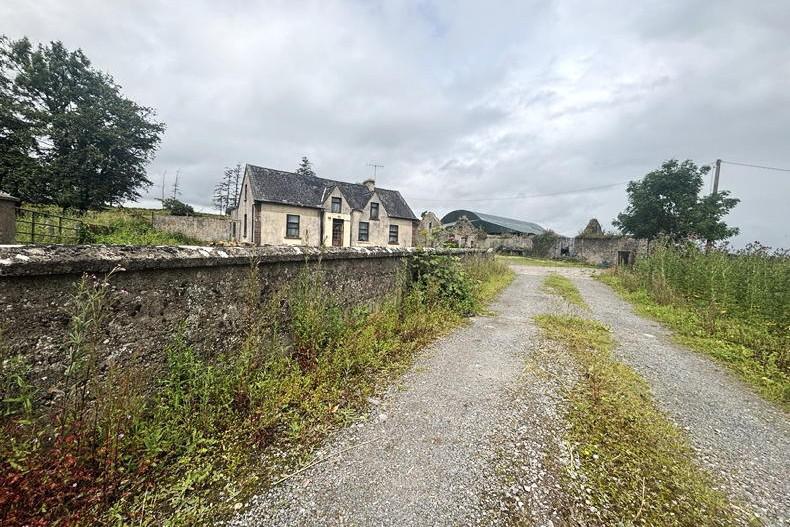Last week in Climate Conversations, retrofitting homes was discussed.
In this context, retrofitting refers to changes made to your home to make it more energy-efficient, thus making your home warmer and bringing down the cost of your energy bills.
A win-win, but retrofitting homes does not come cheaply.
However, there are grants available from the Sustainable Energy Authority of Ireland (SEAI) to cover some costs, depending on your situation and the level of your upgrade.
In this article we will look at: what grants are available, what works these grants cover, how much money can be saved or recouped and the process of applying for an SEAI grant.
There are three options available when it comes to Government-funded grants through the SEAI:
Free Energy Upgrades
Free energy upgrades are available to qualifying home-owners in receipt of certain welfare payments. This grant route is fully funded and managed by the SEAI.
A survey of the home is carried out to determine the best energy upgrades suitable for that home. A registered contractor is assigned to carry out the works. A Building Energy Rating (BER) assessment is carried out on completion of works.
This is available for upgrading heating and insulation systems for homes built and occupied before 2006.
According to Citizens Information, the works covered under this grant include attic insulation, wall insulation, draught-proofing, lagging jackets, energy-efficient lighting, new central heating system, replacement windows and energy advice.Energy upgrades can be applied for online, by post or the Department of Employment Affairs and Social Protection can complete the relevant section of the application form. One Stop Shop service
The One Stop Shop service is for home-owners who have a BER of C2 or lower and who wish to carry out multiple energy upgrades in one go to achieve a minimum BER of B2.
Home-owners access a One Stop Shop that will manage the entire project, including the grant application. SEAI says the list of SEAI-registered One Stop Shops is currently being updated.
In this case, the home-owner pays for the works minus the grant upfront and the One Stop Shop claims the grant back from SEAI on completion of works.
Individual Energy Upgrade grants
For home-owners looking to do only one or two energy upgrades, there are individual energy upgrade grants available.
Here, the home-owner manages their own project by selecting a registered contractor, applying for the grant themselves and claiming the grant back from SEAI on completion of works.
This route gives home-owners the option to carry out works over a period of time rather than in one go.
For individual energy upgrade grants, you will need the MPRN number from your electricity bill and the name and ID number of your selected contractor from the SEAI list of registered contractors. You can apply online or by post. For this grant and the One Stop Shop, outlined above, the following is applicable:
These grants are available for upgrading insulation and heating control systems for homes built and occupied before 2006, and for renewable upgrades for property built before 2011. According to Citizen Information the works covered under these grants include: attic insulation, wall insulation, heating control upgrade, solar thermal solutions, solar PV panels and battery systems, heat pump systems and a BER after the energy-saving work is carried out. If your goal is to bring your home to a BER of B2 or above and you use a company registered with SEAI to manage the process and grant for you, additional grants are also available for: a home energy assessment, project management, floor insulation and ventilation.How much can I save by accessing these grants?
This assessment of home energy upgrades and associated costs has been carried out using data from SEAI home energy grant programmes alongside an independent review of costs in the market, which was completed in August 2021.
Below, the two grant levels are illustrated depending on whether the home-owner opts for the One Stop Shop solution or the individual Energy Upgrade approach.
Under the One Stop Shop, a home energy upgrade will bring this D2 rated home to a B2 rating and make it suitable for a heat pump system.
Upgrades would include roof insulation, internal wall insulation, new double-glazed windows, high-performing doors, installation of a heat pump system and mechanical extract ventilation.
The approximate cost for such a project would be in the region of €55,000 to €60,000, depending on the size of the house, condition and starting BER.
The One Stop Shop grant covers approximately 35% of the cost of works. Again, depending on the house, this would range between €19,250 and €21,000.
The individual energy upgrade grants cover a selection of the energy upgrades required to achieve a B2 rated home. These include roof insulation, internal wall insulation and the installation of a heat pump system. The total grant value available would be €6,300.
Following this home energy upgrade, bringing a D2-rated home to a B2 should result in an average reduction of 30% on energy bills per year. However, this will vary depending on the fuel type comparison, occupancy rate and energy usage in the home.
For Individual Energy Upgrade grants a bonus of €300 is available if you complete three measures and an additional €100 if you complete four. Getting a BER done does not count when calculating a bonus.
Note
The current grant offering closes on 31 March 2022. When asked by Irish Country Living about changes to grants after March, SEAI declined to outline any changes and said changes were under the remit of the Department of the Environment.
What is
a BER?
A Building Energy Rating (BER) indicates from A-G how energy efficient your home is. A being the most efficient.
Read more
The cost of a family home retrofit is as individual as the family itself
Between climate guilt and energy bills a retrofit could being peace of mind
Last week in Climate Conversations, retrofitting homes was discussed.
In this context, retrofitting refers to changes made to your home to make it more energy-efficient, thus making your home warmer and bringing down the cost of your energy bills.
A win-win, but retrofitting homes does not come cheaply.
However, there are grants available from the Sustainable Energy Authority of Ireland (SEAI) to cover some costs, depending on your situation and the level of your upgrade.
In this article we will look at: what grants are available, what works these grants cover, how much money can be saved or recouped and the process of applying for an SEAI grant.
There are three options available when it comes to Government-funded grants through the SEAI:
Free Energy Upgrades
Free energy upgrades are available to qualifying home-owners in receipt of certain welfare payments. This grant route is fully funded and managed by the SEAI.
A survey of the home is carried out to determine the best energy upgrades suitable for that home. A registered contractor is assigned to carry out the works. A Building Energy Rating (BER) assessment is carried out on completion of works.
This is available for upgrading heating and insulation systems for homes built and occupied before 2006.
According to Citizens Information, the works covered under this grant include attic insulation, wall insulation, draught-proofing, lagging jackets, energy-efficient lighting, new central heating system, replacement windows and energy advice.Energy upgrades can be applied for online, by post or the Department of Employment Affairs and Social Protection can complete the relevant section of the application form. One Stop Shop service
The One Stop Shop service is for home-owners who have a BER of C2 or lower and who wish to carry out multiple energy upgrades in one go to achieve a minimum BER of B2.
Home-owners access a One Stop Shop that will manage the entire project, including the grant application. SEAI says the list of SEAI-registered One Stop Shops is currently being updated.
In this case, the home-owner pays for the works minus the grant upfront and the One Stop Shop claims the grant back from SEAI on completion of works.
Individual Energy Upgrade grants
For home-owners looking to do only one or two energy upgrades, there are individual energy upgrade grants available.
Here, the home-owner manages their own project by selecting a registered contractor, applying for the grant themselves and claiming the grant back from SEAI on completion of works.
This route gives home-owners the option to carry out works over a period of time rather than in one go.
For individual energy upgrade grants, you will need the MPRN number from your electricity bill and the name and ID number of your selected contractor from the SEAI list of registered contractors. You can apply online or by post. For this grant and the One Stop Shop, outlined above, the following is applicable:
These grants are available for upgrading insulation and heating control systems for homes built and occupied before 2006, and for renewable upgrades for property built before 2011. According to Citizen Information the works covered under these grants include: attic insulation, wall insulation, heating control upgrade, solar thermal solutions, solar PV panels and battery systems, heat pump systems and a BER after the energy-saving work is carried out. If your goal is to bring your home to a BER of B2 or above and you use a company registered with SEAI to manage the process and grant for you, additional grants are also available for: a home energy assessment, project management, floor insulation and ventilation.How much can I save by accessing these grants?
This assessment of home energy upgrades and associated costs has been carried out using data from SEAI home energy grant programmes alongside an independent review of costs in the market, which was completed in August 2021.
Below, the two grant levels are illustrated depending on whether the home-owner opts for the One Stop Shop solution or the individual Energy Upgrade approach.
Under the One Stop Shop, a home energy upgrade will bring this D2 rated home to a B2 rating and make it suitable for a heat pump system.
Upgrades would include roof insulation, internal wall insulation, new double-glazed windows, high-performing doors, installation of a heat pump system and mechanical extract ventilation.
The approximate cost for such a project would be in the region of €55,000 to €60,000, depending on the size of the house, condition and starting BER.
The One Stop Shop grant covers approximately 35% of the cost of works. Again, depending on the house, this would range between €19,250 and €21,000.
The individual energy upgrade grants cover a selection of the energy upgrades required to achieve a B2 rated home. These include roof insulation, internal wall insulation and the installation of a heat pump system. The total grant value available would be €6,300.
Following this home energy upgrade, bringing a D2-rated home to a B2 should result in an average reduction of 30% on energy bills per year. However, this will vary depending on the fuel type comparison, occupancy rate and energy usage in the home.
For Individual Energy Upgrade grants a bonus of €300 is available if you complete three measures and an additional €100 if you complete four. Getting a BER done does not count when calculating a bonus.
Note
The current grant offering closes on 31 March 2022. When asked by Irish Country Living about changes to grants after March, SEAI declined to outline any changes and said changes were under the remit of the Department of the Environment.
What is
a BER?
A Building Energy Rating (BER) indicates from A-G how energy efficient your home is. A being the most efficient.
Read more
The cost of a family home retrofit is as individual as the family itself
Between climate guilt and energy bills a retrofit could being peace of mind









SHARING OPTIONS